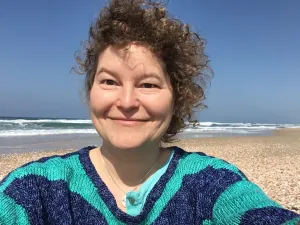
Associate Professor of Sociology at Sociologisk Institut, University of Copenhagen, Denmark
Research project
How do civil society actors and social movements in Western and Central Eastern Europe build social and political trust between citizens and institutions through and within political conflicts about climate justice and democracy? How and to what extent do they use digital media and affective, polarizing images for recruitment, identity mobilization, political dialogue and/or visual persuasion? Scholars interested in discourse, democracy, and public protest still lack empirical studies on how trust in liberal democratic norms and institutions is fostered through conflict-oriented, contentious practices of awareness raising by social movements, in digital media arenas intersecting with face-to-face dialogue in grassroots citizen assemblies or ‘deliberative mini publics’. To fill this gap, Doerr’s project will empirically explore how climate justice activists in Europe and in selected case studies in the Global South construct conflictual relationships of social and political trust by both stirring and/or mediating conflicts about green transition and energy policy. Theoretically, Doerr will draw on radical democratic, dialogical and contentious theories of democracy, cooperation and political mobilization. Focusing on civil society voices as third-party conflict mediators, brokers (Tarrow 2015), or political translators (Doerr 2018), the project will explore how the climate movement builds local and trans-national relationships of social and political trust and solidarity in liberal democratic societies struggling with a variety of global collective action problems.
-
Biografische Angaben
Nicole Doerr (PhD European University Institute) is a political scientist and sociologist with a research focus on transnational democracy, civil society, climate change, migration, gender and the role of digital media in the context of polarization or social conflict mediation. Doerr's monograph on democracy and the inclusion of ideological and cultural diversity in local citizens' assemblies and transnational social movements was published by Cambridge University Press in 2018 (Political Translation, How Social Movement Democracies Survive, Contentious Politics Series). Doerr explores the affective and polarizing content and persuasiveness of digital images on climate change and energy policy using visual and computational linguistic methods (EU Horizon PolarVis project). Doerr's second project explores the role of gender as part of the political identity of far-right and right-wing populist digital media (Horizon Europe-Democracy in an Age of Turbulence Program). -
Publikationen
Nicole Doerr 2022 „Klimaschutz lokal vermitteln: zur Rolle zivilgesellschaftliche Klimaübersetzer:innen in Deutschland und Dänemark.“ Aus Politik und Zeitgeschichte, Sonderheft zu Demokratie und Ökologie, April 2022. Open access. Doerr, Nicole, with Sarah Awad, and Anita Nissen (2022). ‘Far-right boundary construction toward the “other”: Visual communication of the Danish People’s Party on social media.’ British Journal of Sociology, 1– 21. https://doi.org/10.1111/1468-4446.12975 Open access. Nicole Doerr, and Beth Gardner, 2022. “After the storm: Translating the US Capitol storming in Germany’s right-wing digital media ecosystem‘, Translation in Society,1,1, 83 – 104. https://doi.org/10.1075/tris.21008.doe Nicole Doerr. 2019. “Activists as political translators? Addressing structural inequality and positional misunderstandings in refugee solidarity coalitions in Germany and Denmark.” In Irvine, J, S. Lang, & C. Montoya (Eds.), Gendered mobilizations and intersectional challenges: Contemporary social movements in Europe and North America London: Rowman & Littlefield. Pp. 189–207.

